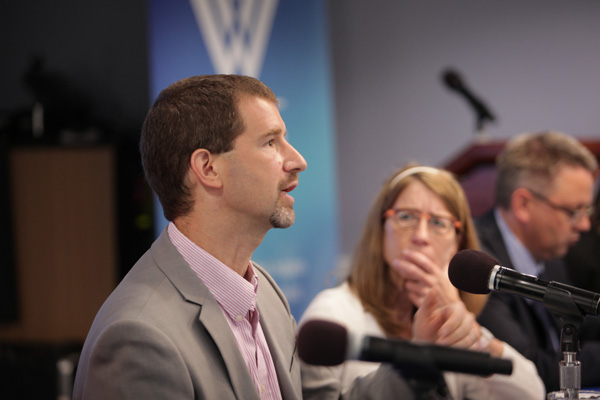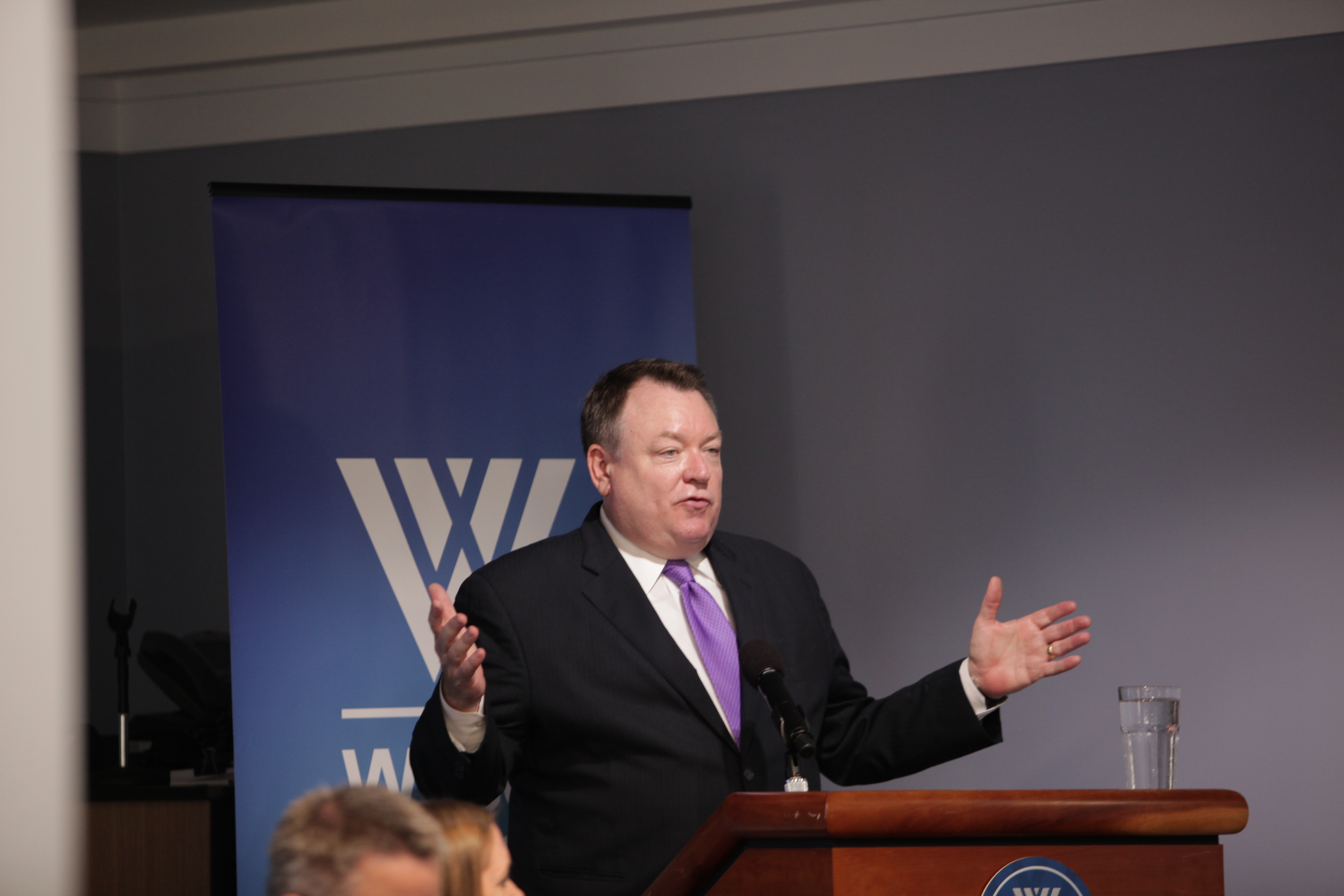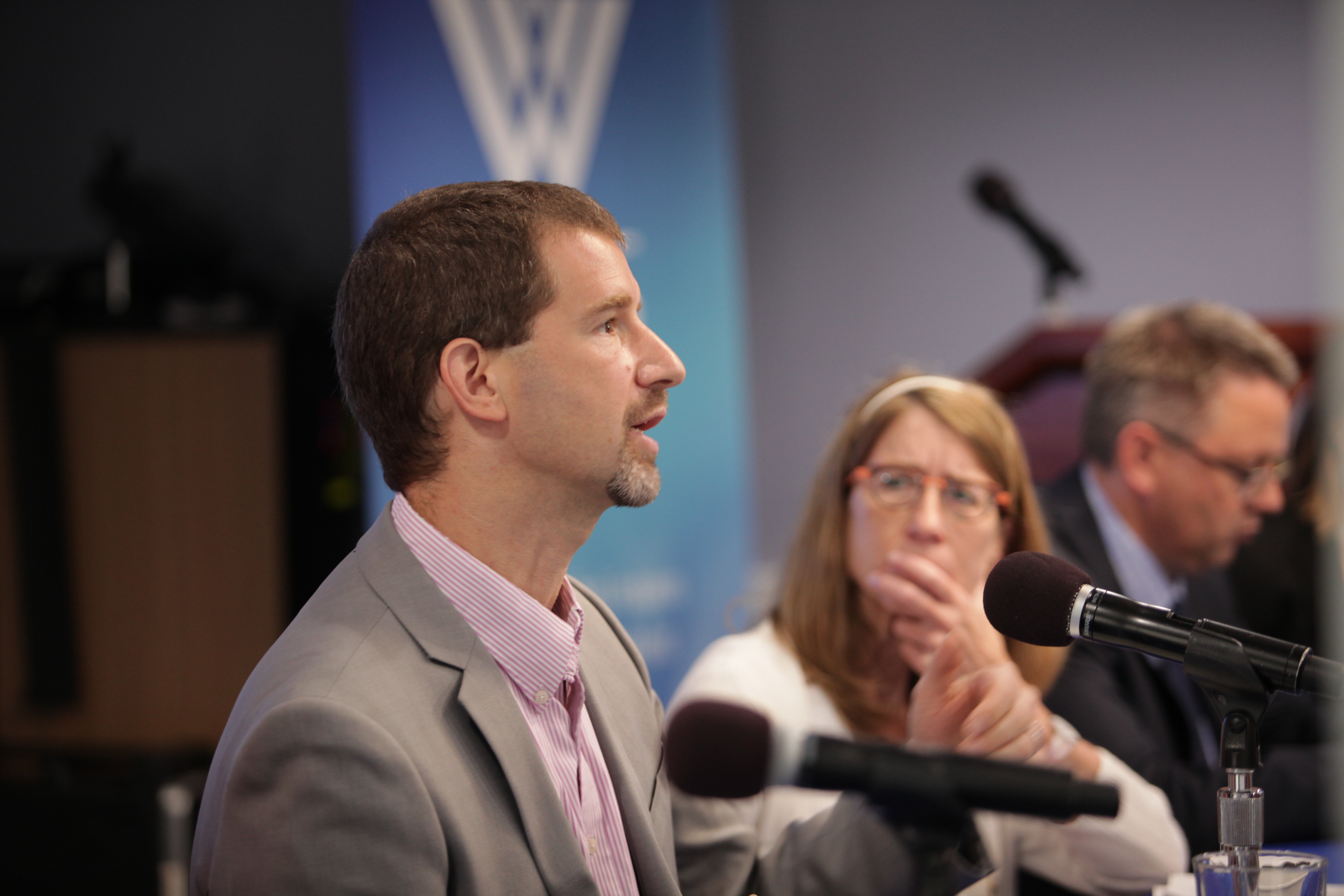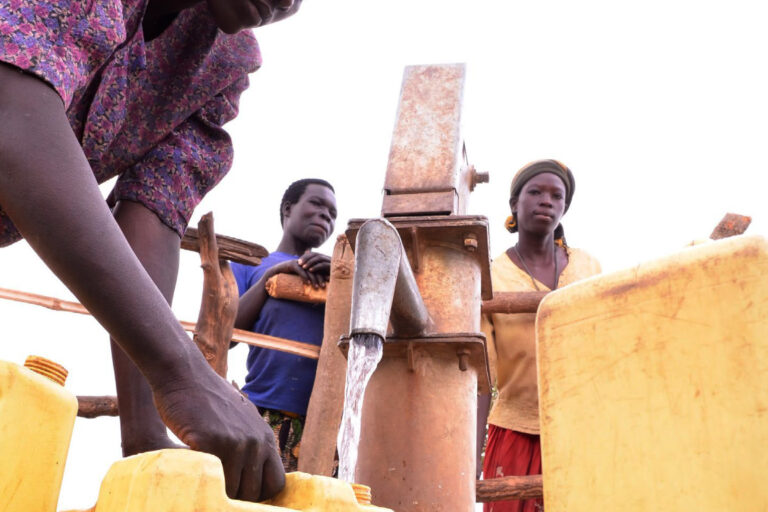
The Challenge of Too Little Water
The Sustainable Water Partnership's expert panel discusses issues surrounding water scarcity at D.C.'s Wilson Center.
There’s a hum in the air, an audible energy, as more than 60 water experts, practitioners and stakeholders take their seats at Washington D.C.’s Wilson Center on September 26. They’ve come for the first installment of SWP’s “Sustainable Water, Resilient Communities” series. In the words of Winrock President and CEO Rodney Ferguson, everyone present shares a common interest: “how water can be used as a strategic instrument in the creation of a safer, healthier, more nutritious, less aggressive world.”

As USAID’s Senior Water Resources and Climate Advisor Richard Volk mentions in his opening remarks, water use has been growing at twice the rate of population increase over the last hundred years. The reasons why are complex, involving several sectors beyond water itself. Agriculture uses 70 percent of the global water supply, and water issues, particularly drought, drive 20 percent of global undernutrition. The gravity of the situation quickly becomes clear: water scarcity is a real problem, and it’s only getting worse as time goes on.
So how can we solve the challenge of too little water? The answers, of course, are as complex as the question. SWP’s panel brought together a range of expertise: two water experts, SEI senior scientist Annette Huber-Lee and IUCN Global Water Programme Director James Dalton; a food security expert, Richard Choularton of Tetra Tech; and a representative from the private sector, Mars Inc. Global Sustainability Director Kevin Rabinovitch. Moderated by the Wilson Center’s Lauren Herzer Risi, the panel combined their diverse perspectives to discuss the issues surrounding water scarcity.

Amid conversations of finance, governance, national security, and climate change and variability, a key theme emerged: the necessity of cooperation, consideration and partnership. Take what Rabinovitch says about Mars’ approach to sustainability. While watershed managers – governmental or otherwise – have no option but to manage their watersheds, private sector actors like Mars have choices.
“If this is a really stressed watershed, all we’re doing by buying this raw material is contributing to the demand and the problem,” he explains. “It would be better for us to go buy that same raw material in a place where it’s grown using nothing but rain-fed irrigation and there is no water stress.”
It’s a simple decision, but by considering the concerns of watershed managers and looking toward sustainability, the private sector can have huge impacts. As Huber-Lee points out, “We have to keep in mind that these decisions that take place at 30,000 feet really play out at human scales.” Mars’ choice to source their crops sustainably might mean more reliable water access for local populations.
Huber-Lee sums it up nicely. “Sustainability requires a shared understanding of how we are interconnected and interdependent,” she says. “It really takes a partnership.”
Of course, this spirit of partnership means not only understanding the overlapping (and sometimes conflicting) needs of stakeholders, but also working together across disparate organizations and even sectors. As Dalton puts it, “finding the critical path for how teams and institutions can work together will help us leapfrog many of these challenges.”
The Sustainable Water, Resilient Communities series will continue with three more installments at the Wilson Center in the coming months. You can watch a recording of the event below:
Photo courtesy of the Wilson Center/Saiyara Khan.
Related Projects

